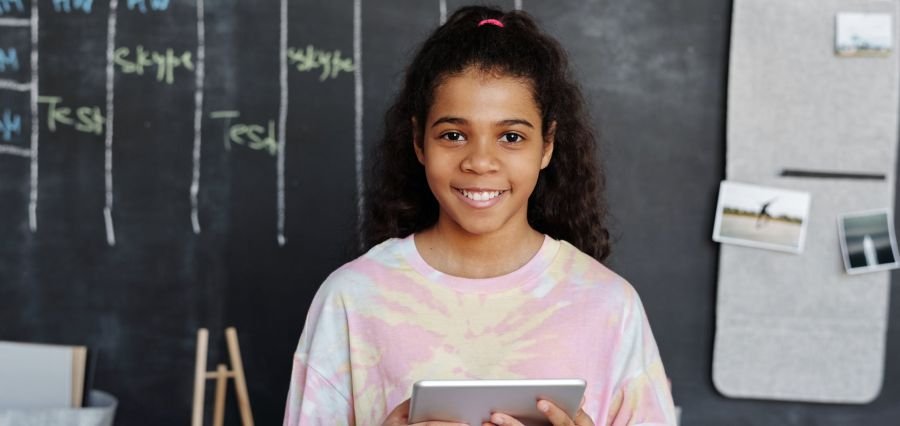Artificial intelligence is no longer a new concept. We have been using it in our daily lives, through half a dozen apps that feed us information based on our preferences.
The technology has found its way to almost every field. And education is one sector that stands to benefit tremendously from AI. However, many schools and professors have been reluctant to include AI in their teaching methods. The reasons are primarily the lack of awareness of AI and how it can help the education system.
In this article, let us take a closer look at the merits and demerits of introducing AI in education.
Pros of Artificial Intelligence
1. Organized Information
It is rare for teachers and students to scour the library for any materials these days. Today, thanks to Google, we can access anything we want at the tap of our fingers. Whether you want to find resources for your assignment or use an essay writing service to finish your citation, the internet has answers for you. However, finding these resources is a task by itself.
Today, platforms such as Quizlet can help students by providing what exactly they are looking for. They give you the relevant study materials, taking out the guesswork needed in developing individual study plans.
2. Personalized Learning
Perhaps the most impressive use of AI in education is personalized learning. More and more schools are shifting from a broad lesson plan to personalized learning experiences for students. There is a limit to teachers attending personally to all students in a classroom. Instead, these AI solutions can collect data on student’s abilities with their guardian’s permission.
AI can optimally introduce courses and challenge students based on their strengths and weaknesses. Kidaptive and Century Tech are platforms developed exclusively to offer individualized learning plans to students. At best, they can also perform predictive analysis on the academic performance of pupils based on the underlying patterns. Visit Talkie AI Chat to learn more about AI chatbots.

3. Better for Students with Special Needs
AI is playing a crucial role in improving the lives of the disabled. Along the lines of personalized learning, one area where AI truly excels is offering better resources to the disabled. Speech recognition software such as Nuance can help transcribe words for students with writing difficulties or limited mobility. These solutions can help teachers offer better study materials for students that attend to their unique demands like never before.
4. Immersive Learning
Our system has long been focused on the memory retention of students rather than their understanding. AI can help you change that. Combined with Virtual and Augmented Reality, AI can bring a dynamic learning environment to the classroom. Students can explore the galaxies, see world monuments, and do much more. Virtual humans, such as avatars and digital assistants, can also extend this learning experience outside classrooms.
5. Intelligent Tutoring Systems
ITS is not a new concept, but AI has helped to polish its rough edges. Intelligent Moderation allows teachers and tutors to analyze information better. It will make the grading systems better, and in turn, will help them to be more efficient in the classrooms.
AI systems can also identify patterns, alerting teachers of these as well. Teachers can thus learn more about students’ habits and create a new study schedule that will work best with their requirements.
Cons of Artificial Intelligence
1. Cost
As brilliant as AI is, it also comes at a high cost. Not only is the price of the product high but also the cost of maintenance and repair. As AI requires more digital devices, the amount of power needed to run schools will increase exponentially. Schools will have to expand their budget to cover the expenses. Moreover, they will also have to come up with alternatives to balance out power consumption. As such, at the moment, only well-funded schools can benefit from AI.
2. No Personal Connection
If, and when we completely turn to AI for the educational experience, these programs can substitute teachers in many aspects. A big part of school is the relationship between teachers and students and how personal connections can mold behaviors. Instead of making teaching more efficient, we might end up entirely dependent on technology. If we aren’t already addicted to technology, AI can only push us further.
3. Unemployment
While the software industry might be booming, AI might soon replace many school staff. From managing the administration to teaching, AI has a solution for everything. With online learning, there is no limit to the class sizes. And AI might be the last straw that leads to sizable unemployment in the educational sector.
4. Information in Wrong Hands
There is no way other than to digitize information these days. But much like any other technology, the students’ data could also be prone to hacking. If it falls to the wrong hands, schools always run the risk of misuse of personal information.
The prospect of AI is undeniably exciting. There is always the argument that the upsides outweigh the downsides. The question is, to what end? It is high time that our educational system requires a revamp, and AI can nudge us in the right direction. At the same time, it is paramount that we draw lines on how much control we give over to machines and their intelligence.









